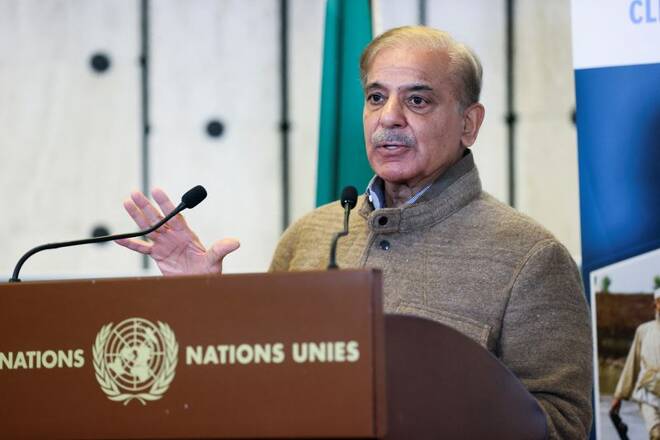Advertisement
Advertisement
IMF giving Pakistan tough time in ‘unimaginable’ economic crisis – PM
By:
By Asif Shahzad ISLAMABAD (Reuters) - Pakistan Prime Minister Shehbaz Sharif said on Friday the International Monetary Fund was giving his country a tough time over unlocking stalled funding from a $6.5 billion bailout at a time the South Asian economy faces an "unimaginable" situation.
By Asif Shahzad
ISLAMABAD (Reuters) – Pakistan Prime Minister Shehbaz Sharif said on Friday the International Monetary Fund was giving his country a “tough time” over unlocking stalled funding from a $6.5 billion bailout at a time of “unimaginable” economic crisis.
Hours after his remark, the Pakistani rupee hit a record low against the U.S. dollar in a steep slide since last week.
“Our economic situation is unimaginable,” the premier said, adding the IMF visiting mission was giving Pakistan a “tough time.”
“The conditions we have to fulfil are beyond imagination,” he said, but admitted that the country has no option but to accept them.
“You all know we are running short of resources,” Sharif said, adding the country was “facing an economic crisis”.
He made the comments in a meeting of civil and military leaders in the northwestern city of Peshawar he chaired to prepare a response to Monday’s mosque bombing that killed more than 100 people.
He was speaking in the context of funds the country might need for any military or counter-terrorism response to the resurgent Islamist militancy.
IMF’s Pakistan representative did not immediately respond to a Reuters request for comment.
Free fall
The IMF mission is visiting Pakistan to discuss fiscal consolidation measures the institution needs from Pakistan to clear a 9th review of its Extended Fund Facility, aimed at helping countries facing balance-of-payments crises.
Pakistan’s central bank reserves at present stand at $3.09 billion, the lowest since 1998 and not enough to cover the cost of three weeks of imports.
The IMF’s demands aimed at controlling the country’s budget deficit have led Pakistan to leave its currency to market based exchange rates and raise fuel prices.
The Pakistani rupee fell by 1.9% to a record low of 276.58 per dollar in the inter-bank market on Friday, according to the central bank.
The local currency has dropped 16.5% since the artificial cap was removed last week to allow its value to be decided by a market-based exchange rate.
The rupee also shed 2.65% against the U.S. dollar on the open market, according to the association of exchange companies.
An IMF delegation is in Pakistan to restart talks stalled since November for $2.5 billion funds yet to be disbursed.
Despite the economic situation, Sharif said his country will do whatever possible to fight militancy. “We will use all resources in our capacity to fight this menace,” he said.
(Reporting by Asif Shahzad in Islamabad; Additional Reporting by Ariba Shahid in Karachi; Editing by Elaine Hardcastle, Louise Heavens and Arun Koyyur)
About the Author
Reuterscontributor
Reuters, the news and media division of Thomson Reuters, is the world’s largest international multimedia news provider reaching more than one billion people every day. Reuters provides trusted business, financial, national, and international news to professionals via Thomson Reuters desktops, the world's media organizations, and directly to consumers at Reuters.com and via Reuters TV. Learn more about Thomson Reuters products:
Latest news and analysis
Advertisement
